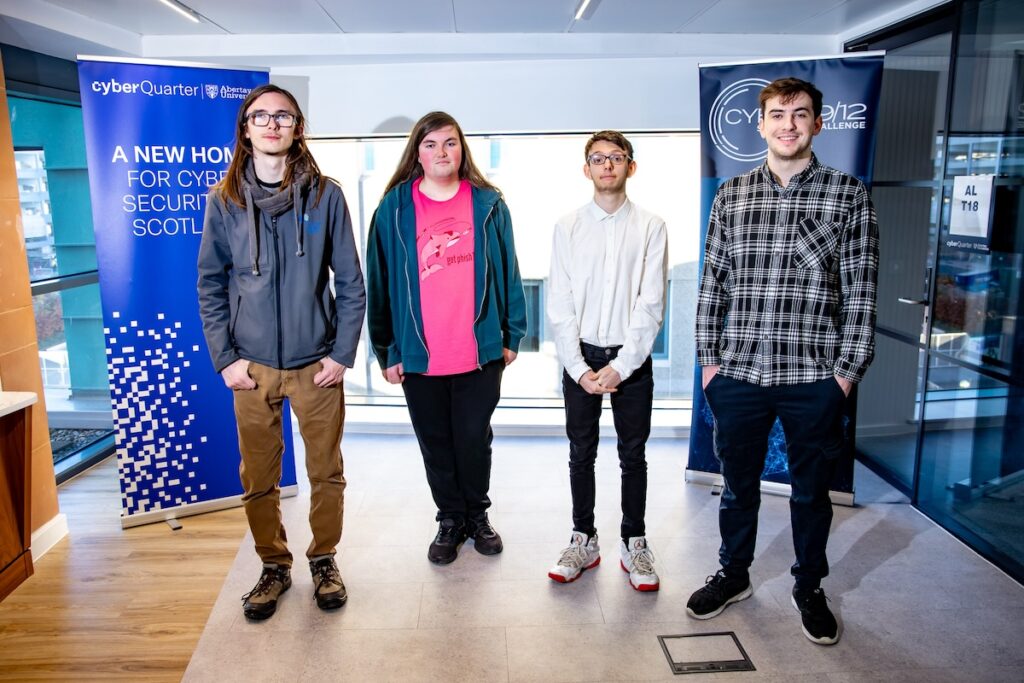University and college students from across Scotland took part in a nail-biting ‘major cyber incident’ simulation in a bid to boost decision-making and crisis management skills.
The students participated in a global competition at Abertay University’s cyberQuarter in Dundee for the third consecutive year, taking on the role of senior government policy advisors amidst a targeted cyberattack.
The competition, run by the foreign policy think tank the Atlantic Council, based in Washington, DC, is designed to give students from diverse academic backgrounds a deeper understanding of the complex policy and strategic challenges involved in navigating trade-offs during a cyber crisis.
Combining interactive learning with competitive scenario exercises, it pushes students to react to a ‘dynamic, realistic scenario, analyse threats to national, international, and private-sector interests, and offer recommendations for the most effective actions to mitigate the crisis’.
This year’s Cyber 9/12 Strategy Challenge, held online for the first time, featured teams from Abertay University, the University of Glasgow, the University of Stirling, Strathclyde University, the University of Edinburgh, Dundee and Angus College, and Fife College.
The “NULL SEC” team from Dundee and Angus College claimed the top prize, while two teams from the University of Glasgow secured the runner-up and third place positions.
Ollie Killean, team lead for NULL SEC, said: “We all thoroughly enjoyed participating in the Cyber 9/12 event. It introduced us to how politics and cybersecurity can interact so closely and allowed us to meet and connect with people actively engaged with policy and the cybersecurity industry. I hope that D&A winning shows other colleges that attending the event next year is well worth the effort.”
Senior cybersecurity professionals from Microsoft, Evalian Limited, Europol, and Adobe were among the judging panels charged with assessing the students’ performance.
The event was sponsored by DigiTay, the Tay Cities Digital Skills Project which is part of the £20 million Regional Skills and Employability Development Programme, funded by the Scottish and UK governments through the Tay Cities Region Deal.
Professor Lynne Coventry, director of the cyberQuarter, said: “This kind of collaboration between industry and academia lies at the core of Abertay cyberQuarter’s mission. The innovative perspectives and lateral thinking presented by the students have truly invigorated the competition and inspired our judging panel. It is crucial for Scotland to continually seek out fresh and innovative methods to advance cybersecurity, develop new strategies for the sector, and create job opportunities within the industry, all while enhancing the country’s overall cyber resilience.”
Safa Shahwan Edwards, director for capacity building and communities at the Atlantic Council, said: “We’re thrilled to see such strong turnout from colleges and universities across Scotland, highlighting the demand from both the next generation and employers for interdisciplinary talent in addition to technical literacy. We’re honoured to collaborate with such committed partners at the cyberQuarter, Dewar Cyber Consulting, and the Scottish Government to develop a more diverse and cyber-ready workforce that is prepared for tomorrow’s cyber resilience challenges.”
